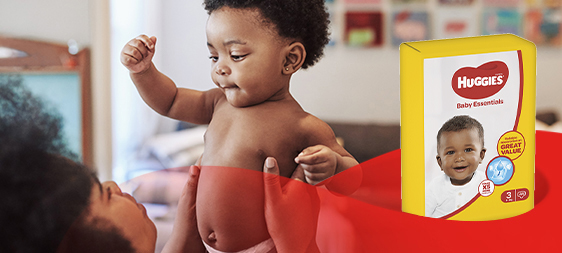Week 41 pregnant
You’re probably short-tempered even with your own shadow this week, waiting in anticipation for “D” day. Even though your planned due date has come and gone, don’t feel as if you’re experiencing humanity’s longest gestation.
You’re probably short-tempered even with your own shadow this week, waiting in anticipation for “D” day. Even though your planned due date has come and gone, don’t feel as if you’re experiencing humanity’s longest gestation. Less than 5% of pregnant women actually have their baby on their due date and deliver either before it or later. This is because there is often some confusion about dates, or when the baby was actually conceived and some babies just take a little longer than others. Although you may not feel it right now, you can be guaranteed there will be an end to your pregnancy within the next week or so.
When will this all end?
You may have been discussing the option of being induced with your midwife or doctor this week. Usually, there needs to be a weighing up of factors for it to be done, including your own well-being as well as your baby’s. Some women get so overwhelmed with emotion at 41 weeks pregnant that induction is warranted. They feel so swamped by the anticipation and stress of waiting for labour that it is sometimes considered in the best interests of their mental health that labour is initiated. Other women are able to adopt a calm, “wait and see” attitude. Essentially every woman is an individual and will respond to being overdue in their own unique way.
Your physical changes this week
Your antenatal checks may include specific post dates or past maturity assessments when you are 41 weeks pregnant. It may be that you are sent for a couple of CTGs (Cardiotocographs) this week, as well as an ultrasound. The amount of amniotic fluid surrounding your baby may be measured, as well as the size of the baby and location of the placenta. The placenta does not work as efficiently in overdue pregnancies and it is important that its function is monitored.
You may be asked to keep a record of your baby’s movements and activities this week. If there is a significant change or decrease in its movements you will need to present this at the maternity hospital.
You could feel pressure on your cervix this week, a sensation difficult to describe. Similar to the pain felt when having a pap smear, it may come and go depending on how much pressure the baby’s head is applying. Your cervix will be ripening now, which means it is thinning out - ready to start dilating. During active labour, your cervix will need to dilate to 10 cm to allow the baby’s head and body to exit your womb.
You may experience an increase in your vaginal discharge as the cells of your cervix produce a white, watery substance. Some women may have a mucousy show this week too, and though this is not a true sign of labour, it is an indication that something is happening.
Your emotional changes this week
Every twinge and pain may be a sign that this is it; your wait is finally over! Even going to bed gives you no reprieve, and you wonder if you’ll be woken in the night with labour pains. Trying to keep a calm attitude is very hard at 41 weeks pregnant. To top everything off, it will seem impossible to make any concrete plans to do anything and you’ll feel as if your whole life is hinging on one big event.
You are entitled to feel more than just a little frustrated, excited, anxious, restless, apprehensive, scared, uncomfortable, and tired this week. Try to rest if you feel like it and do simple jobs that don’t require too much energy expenditure.
Try to get absorbed into a book that captures your imagination or a DVD series. Look for activities that will help pass the time and get your mind off the waiting game. Visit friends or better still, ask them to visit you. Do something in the mornings and then allow for an afternoon rest. Try to break up the day, so it doesn’t seem to stretch on forever.
Try visualising yourself in labour. Imagine yourself being strong and giving over to whatever your body needs to do, to give birth to your baby. Have faith in your healthcare providers. Recognise the importance of your own health, as well as your baby’s health and safety, over any desires you have for your labour. This needs to be everyone’s priority.
You may find yourself having vivid, strange dreams about the baby this week. You could dream you’ve already had it and haven’t realised, or it may not be the gender you would have preferred. You may wake feeling more tired than when you went to bed. Your imagination can really work overtime when you are overdue.
Your baby’s changes this week
Most of the lanugo and vernix on your baby’s skin has been reabsorbed this week, ending up in its stomach and gut. This, combined with bile fluids and dead skin cells forms the contents of its first bowel motion. Be prepared for the blackest, stickiest nappy you’ll ever need to change.
It may feel as if your baby is about to literally pop out of you especially if you’ve had previous children. If only it were that simple. Your baby is mature, but not quite ready to initiate its birth.
Your baby will be well developed by now and is very ready to breathe, feed, digest, eliminate, cry and make its needs known, if it chooses to arrive this week.
Hints for the week
If you are keen to try and bring on labour yourself, there are a few things you can try. Although they are not guaranteed to work, you may find them helpful:
Eat a strong, hot curry or spicy Thai meal. This strategy tends to work in making the bowels contract and move. Having sex is thought to help because prostaglandins are contained within male semen. These have a similar action to the artificial hormones contained in the gel used to artificially induce labour.
Go for a long, lengthy walk if you have the energy. This will help to apply pressure to your cervix from the baby’s head and may help it to efface (thin) and dilate.
Try some nipple stimulation if you can tolerate it. Some women find this very useful in starting contractions. If you don’t want to do it to yourself, your partner may be keen!
Aim for a simple life this week and don’t take on big jobs. Painting the house, building a rock wall or starting a new renovation can all wait.



















